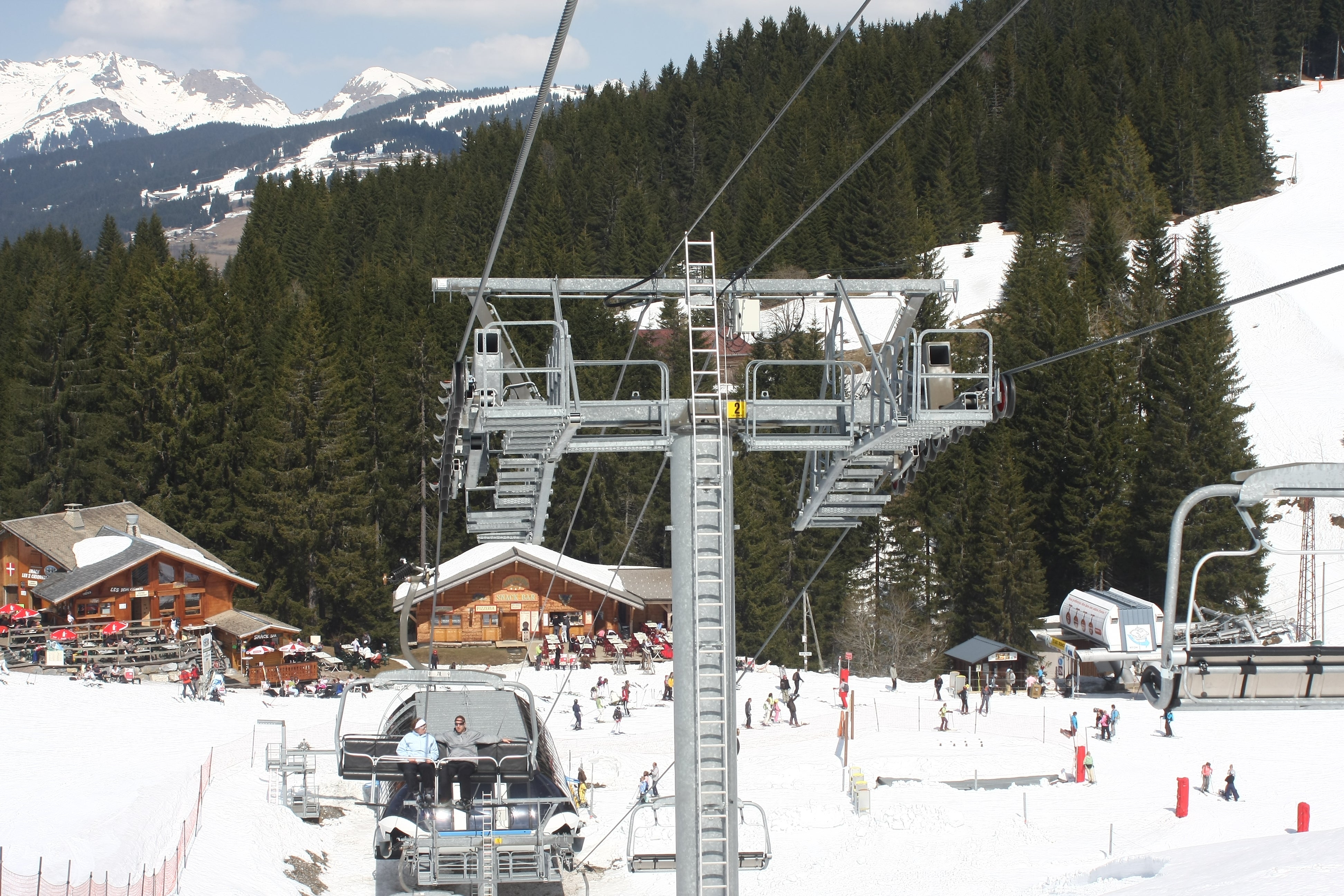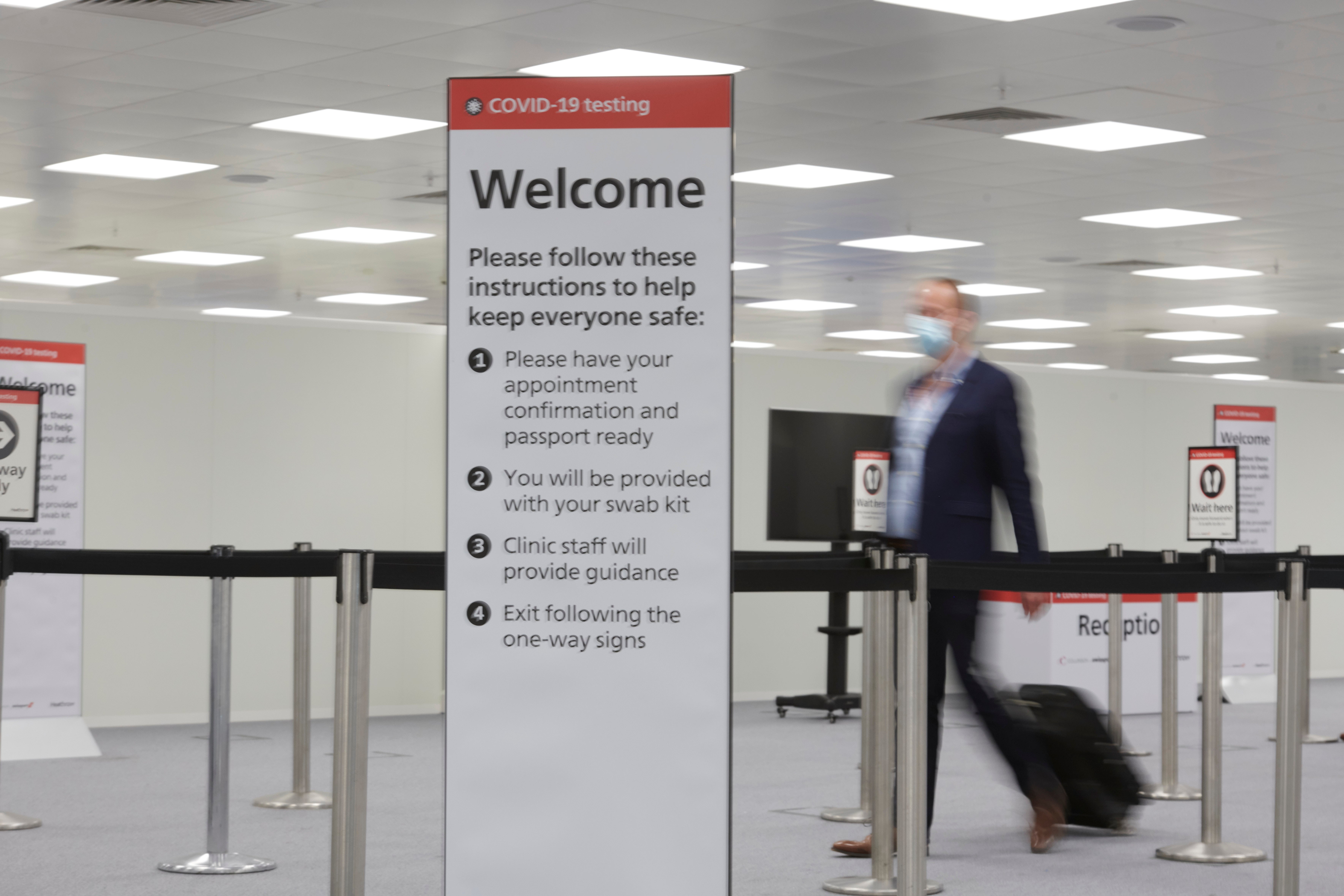Should I cancel my Switzerland holiday after the omicron outbreak?
Simon Calder answers your questions on the latest travel restrictions and makes sense of PCR tests


Q I have flights to Geneva booked on 1 January, together with a private transfer to Les Arcs in France. With the recent Swiss quarantine rules, do I cancel my flights and rebook to Lyon? Act early or wait to see if things change? Any advice?
James C
A As frontiers around the world continue to clatter shut because of fears of the omicron variant of coronavirus, Switzerland is among the nations to have imposed strict quarantine rules. Arrivals from countries where the new variant of concern has been detected, including the UK, must self-isolate for 10 days.
Inconveniently for skiers, the main gateway for the French Alps is Geneva airport in Switzerland. While in normal times there is usually a “French sector” of the airport terminal for people who want to exit into France, this is currently closed for refurbishment work. In addition, the airport says the French sector is considered part of France “from a customs point of view” but it is still Swiss “from a sanitary point of view“ and cites as an example ”the context of Covid-19”.
Given that your trip is still a month away, though, I advise you to practise “masterful inactivity”: the art of wait-and-see. While I understand the apprehension that the events of the past few days have created among travellers, taking hasty action could end up costing you a fortune for little or no reward.
In the context of your skiing holiday, allow me to set out three scenarios. The first is that the threat from the omicron variant turns out to be only a passing fear, with scientists concluding over the next few days and weeks it does not pose a significant threat. In that event, you can be pretty sure that Switzerland will relax its self-isolation policy.
The second: uncertainty prevails, and Switzerland persists in demanding quarantine. But it could be that France is more relaxed, and a way is found for British travellers heading for the slopes of the French Alps to get through the airport without self-isolation.
The third: omicron sparks a severe shutdown of international travel, with France once again closing borders to British travellers on non-essential trips.
In any of these scenarios, I contend, switching to Lyon will not be of any benefit. So I suggest you stay as you are for now.

Q For arrivals at Heathrow but travelling to Wales, can the new PCR test be taken on the day of arrival (day zero) or must you wait until the second day to do the test? There is a lot of confusion about this. The written rule seems too ambiguous. Grateful for clarification.
Gill P
A Like many people planning to return to the UK, you are understandably confused by the complex new international rules announced by ministers over the weekend.
The key elements are: from 4am tomorrow arrivals aged five or over must take a PCR test – not a lateral flow – after they arrive; and they must self-isolate until a negative result is received.
An unfortunate consequence of the government insisting on describing the test after arrival as a “day two” test is that some people understandably think it must be taken on the second day after arrival. That is not the case.
You could take the test up to midnight on day two, but from all points of view it makes much more sense to take it as soon as you step off the train, boat or plane on arrival in the UK. Since the whole idea is to find out as early as possible if cases of coronavirus (and in particular the omicron variant) have been brought into the UK, an immediate test is to society’s benefit. It is also to your advantage, of course, because it will minimise the amount of time you need to spend in self-isolation.
To spell out the case for you: there are providers such as Collinson and Express Test who can test you at Heathrow on arrival. To get the results within three hours, you are likely to pay around £100. You can then begin your journey home to Wales. You are allowed to travel by bus and/or train, and of course you should respect the rules on wearing masks.
Fortunately, all four home nations are adopting the same policy simultaneously, so there is no extra confusion from your trip across the border. By the time you reach Wales, the result should have arrived. If it is negative, you can immediately rejoin society; if positive, you must self-isolate for 10 days.

Q I am booked to travel to Toronto on 15 December. Will I face problems?
Name supplied
A From my experience of eastern Canada in December, the immediate problem that would alarm me is the extreme cold: the average temperature in Toronto in December is just below freezing. I presume, though, you are apprehensive about possible changes due to coronavirus, and in particular the new variant of concern, omicron.
The honest answer at this stage – 17 days before your departure – is that I don’t know. On Thursday evening, the UK became the first nation to impose a temporary flight ban from southern Africa, and “red list” requirements for hotel quarantine for arrivals from 10 countries including South Africa took effect at 4am today. In addition, post-arrival PCR tests rather than lateral flow are now required again, with the added complication of needing to self-isolate until the result is known.
Since then, travel bans have been imposed by dozens of other nations on the region, with cases of omicron popping up in Europe and movement restrictions getting ever more tangled. As I write, Switzerland appears to have imposed mandatory quarantine for people coming from Belgium because omicron has been detected there – alongside news that two cases have been identified in the UK.
This is happening against a background of extremely high Covid-19 infection rates across Europe. While the UK has a significantly lower incidence than the Czech Republic, Austria and elsewhere in central and eastern Europe, the four home nations are once again reporting more than 50,000 new cases in a day.
In other words, it’s a mess. Undoubtedly there are echoes of March 2020, when a web of travel restrictions spread across the world in a mostly vain attempt to suppress the original form of the virus. Canada was among the nations that put up barriers, with British visitors banned from non-essential travel.
There is, though, the difference this time that both the UK and Canada have reasonably high levels of vaccination. As scientists learn more about the new variant of concern, it is possible that restrictions will tighten. But if omicron turns out not to present a serious risk, then current rules may stay in place.
All of which bestows much uncertainty on your plans, and those for hundreds of other people hoping for a Christmas getaway. The only course of action I can advise right now is “masterful inactivity” – in other words, wait and see. Hasty changes to travel plans tend to prove expensive.
Email your questions to s@hols.tv or tweet @simoncalder






Join our commenting forum
Join thought-provoking conversations, follow other Independent readers and see their replies
Comments